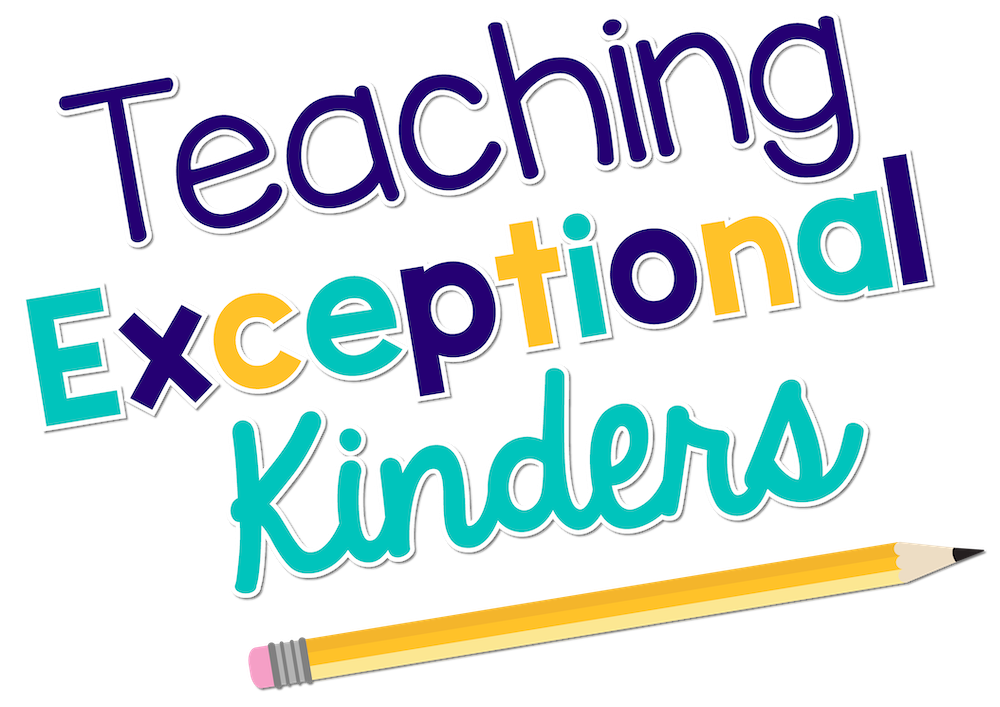Tips for Sending Notes Home to Parents About Misbehavior
One of the keys to successful classroom management is in building relationships with students and their parents. When students feel like they are cared about as a person, they will be more responsive to correction in the classroom. In this post, I wanted to focus on those times when correction has been necessary and parents need to be notified of student misbehavior. If you find yourself worried about impacting your relationship with students and families as you report negative behavior, this post is for you! I’m sharing tips for sending notes home to parents about misbehavior.
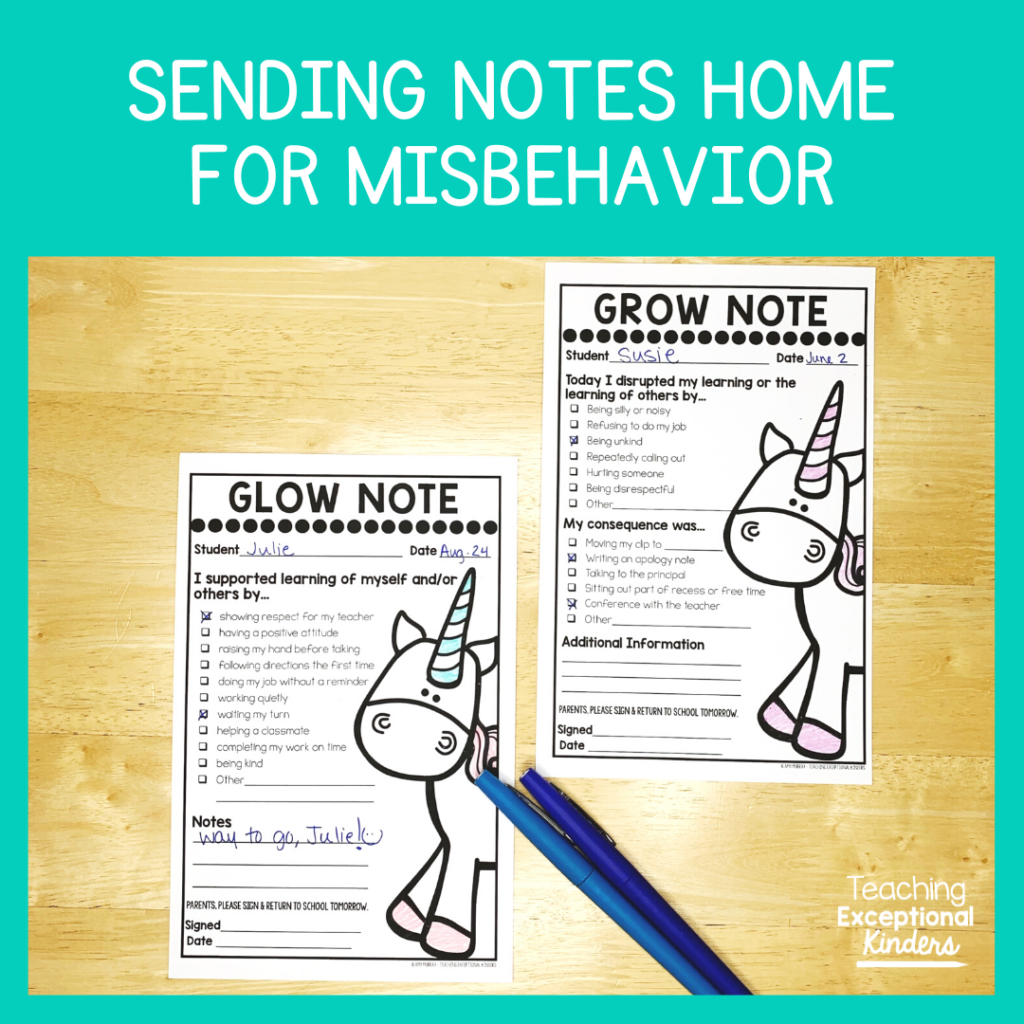
5 Tips for Sending Notes Home to Parents About Misbehavior
Sending notes home to parents can be a game-changer for classroom management. When students know that there is open communication between home and school, it can have a positive impact on student behavior. Even though student behavior is addressed at school by teachers, it’s important for parents to know about the choices their students are making during the day. Both positive and negative!
Positive messages are always fun to send home, but telling parents about misbehavior can be stress-inducing at times. Here are some helpful things to remember when you need to send notes home to parents about negative behavior.
1. Make Sure Your First Contact Has Been Positive
My first tip actually comes before you actually need to send a note home about misbehavior. Your first contact home to parents MUST be positive. This helps to establish a positive relationship with families and shows them you care. That way, when it’s time to send a note home about a behavior concern, it doesn’t feel like you just want to get their kid into trouble.
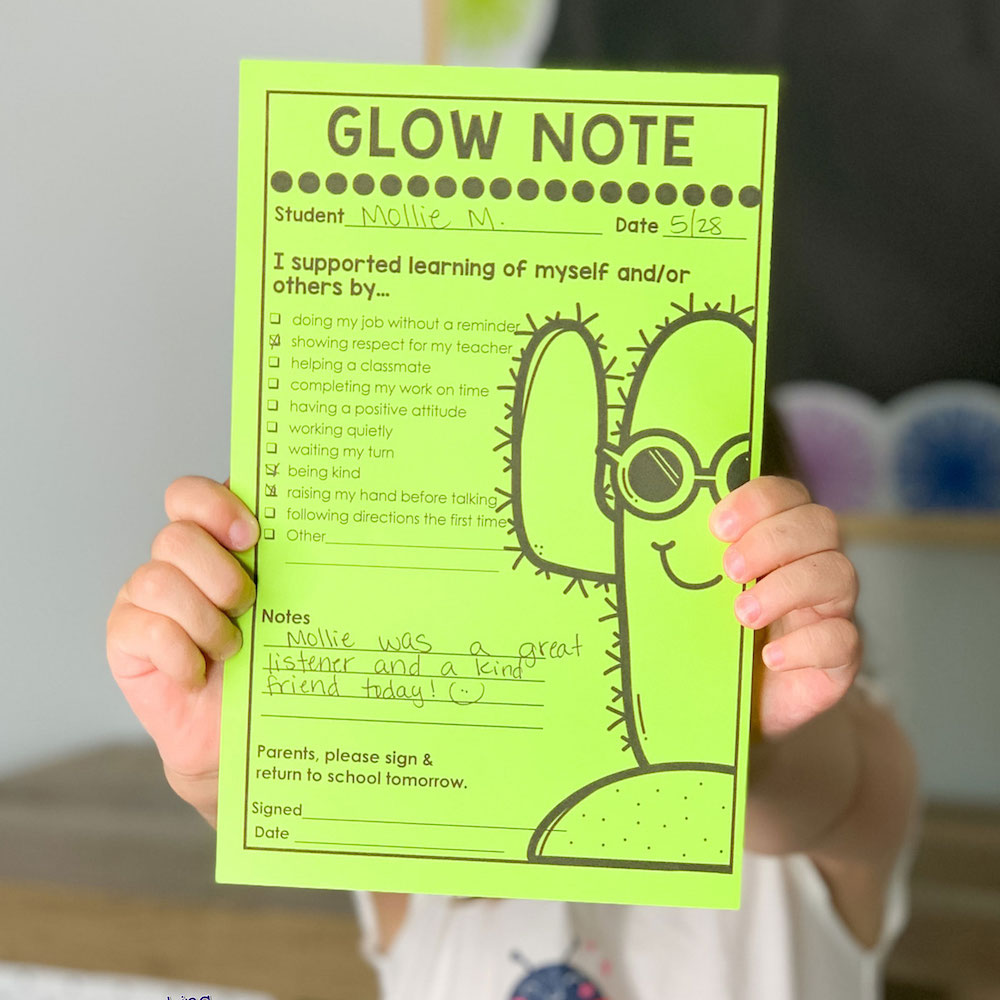
Find something positive to call home about or send a positive note, like a simple glow note. If you can make this a focus at the beginning of the school year, you’ll be ready when it’s time to address student behavior difficulties. You will have laid a foundation of positive feedback with parents so they know you have seen and acknowledged the good in their children before it's time to share something negative.
2. Breathe
Before you write a note about student misbehavior, take a moment to breathe. It can be easy to get caught up in the frustration of the situation and decide to write out the note right then as a way to vent. This could make your parent contact less constructive than you want it to be. Instead, take a step back to decide if you’re in the right space to be writing a note at that moment.
3. Be Specific
Once you’re ready to write a note about your student’s misbehavior, it’s important to be specific. Instead of writing a note that only says “Johnny had a rough day,” describe the specific behavior that you observed. We know how important it is for young learners to have a clear understanding of behavior expectations. Specific feedback about behavior choices helps students make better decisions in the classroom. They have a better idea of the behaviors they need to work on.
It’s also helpful for parents to know what consequences their child received for the behavior. This helps parents discuss their child’s behavior together at home and encourage them to make good choices at school.
4. Add a Positive Spin
Whenever possible, try to put a positive spin on the language you use to describe behavior. For example, if Johnny keeps invading the personal space of his peers, you might say “Johnny is working on staying in his own bubble.” This will help the note home feel constructive and informative rather than punitive.
When you refer to misbehavior as an area of growth, it reframes the reason for sending the note home. Parents are more likely to see that your priority is to help their child be successful. They can see that you are rooting for their child’s success in the classroom.
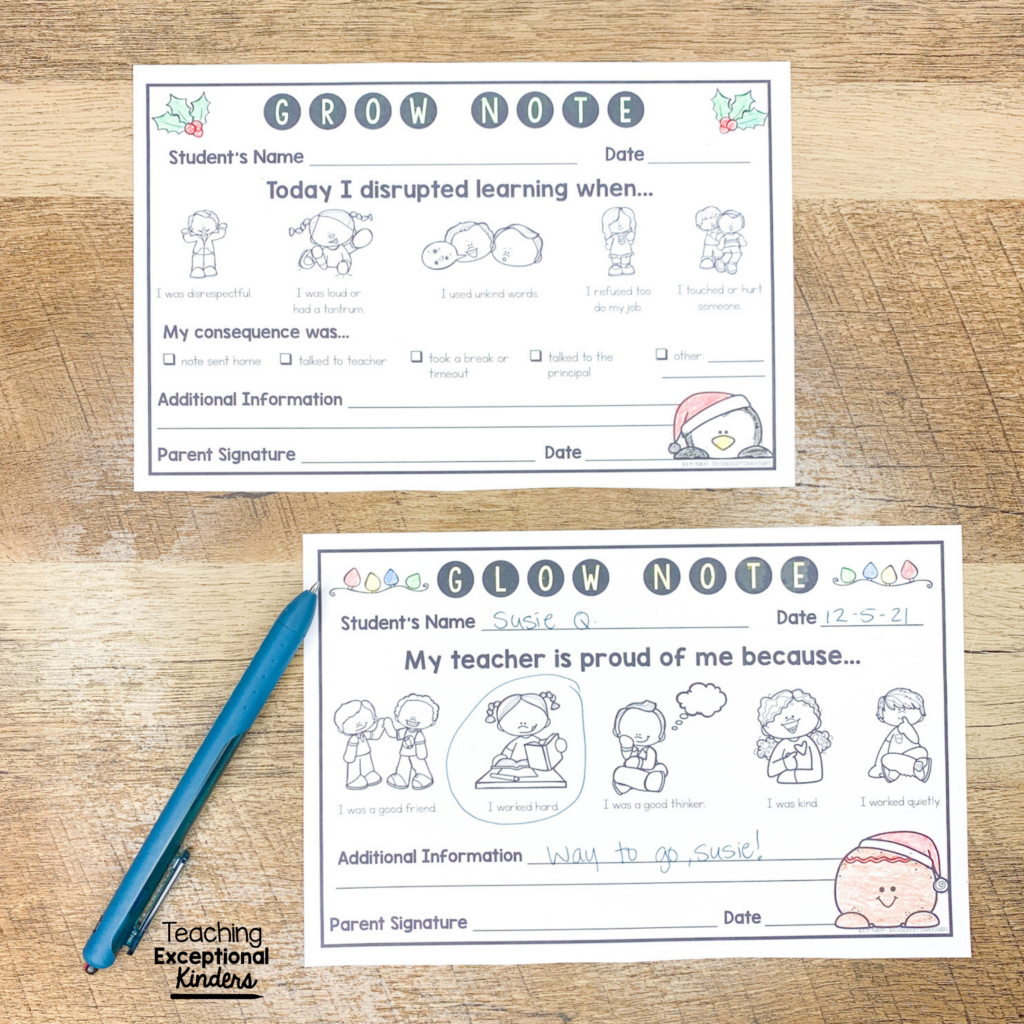
Another way to add a positive spin is to use the same format for your positive notes home as you do for your notes about misbehavior. You can even add a touch of seasonal festivity with the paper you choose.
5. Provide Suggestions
Finally, your note home to parents can include suggestions for how they can support their child in the identified area of growth. If Sally tends to interrupt during classroom discussions, you might suggest to parents that they help her practice taking turns during conversations at home. Providing suggestions like this can help parents feel like they’re part of a team in supporting their child’s behavior.
Receiving a short and constructive note about their child’s behavior will help parents feel included in their child’s education. Be sure to follow up on any notes about misbehavior with positive feedback as soon as you can. Especially if the positive feedback relates to the area of growth! This balance of positive and constructive notes home to parents will help to foster a strong school-home relationship.
Printable Notes Home to Parents
I have created a communication tool that makes it easy to send both positive and constructive notes home to parents regarding student behavior. Glow and grow behavior notes are the perfect way to motivate students to make positive choices while communicating with families using positive language.
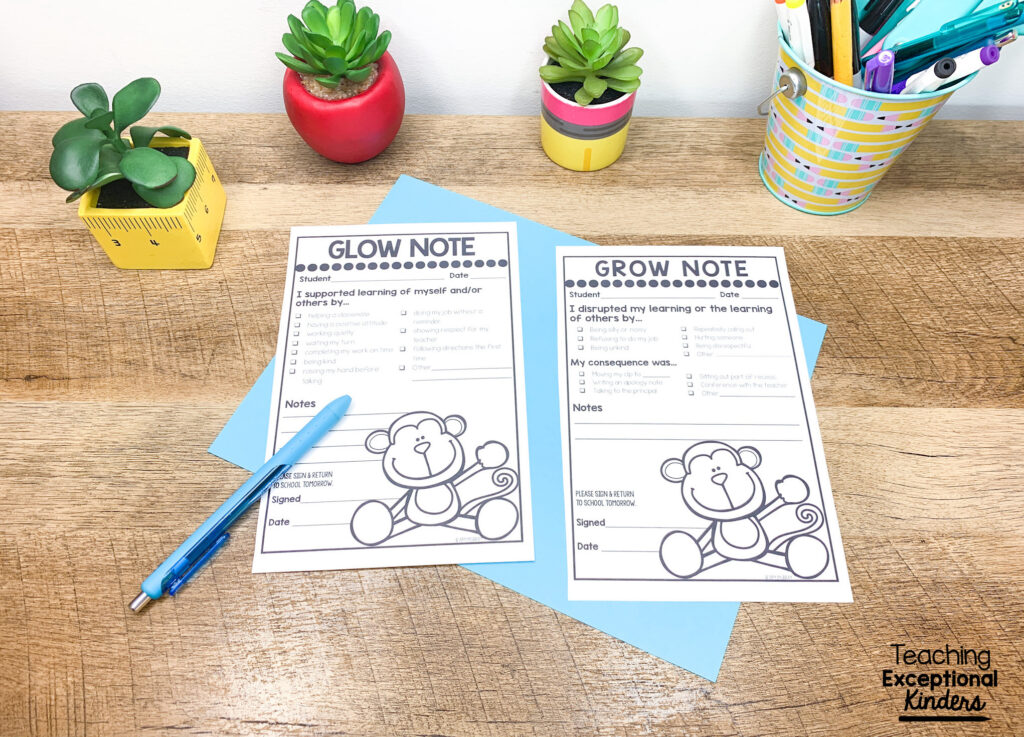
These notes are simple to use, which helps you remain consistent in sending feedback home to parents. You don’t have to spend all of your prep time typing up emails or sending Seesaw messages! These notes use a checklist to make it easy to select specific behaviors to share with parents, plus room to add details as needed.
If you’d like to take a closer look at this resource, you can find it in the Teaching Exceptional Kinders shop or on TPT.
Save These Tips for Communicating with Parents
I hope these tips for communicating with parents have been helpful to you! If you’d like to find these resources and tips later, be sure to save this post. Just add the pin below to your favorite teaching board on Pinterest. You’ll be able to find glow and grow notes whenever you’re looking for simple notes to send home to parents.
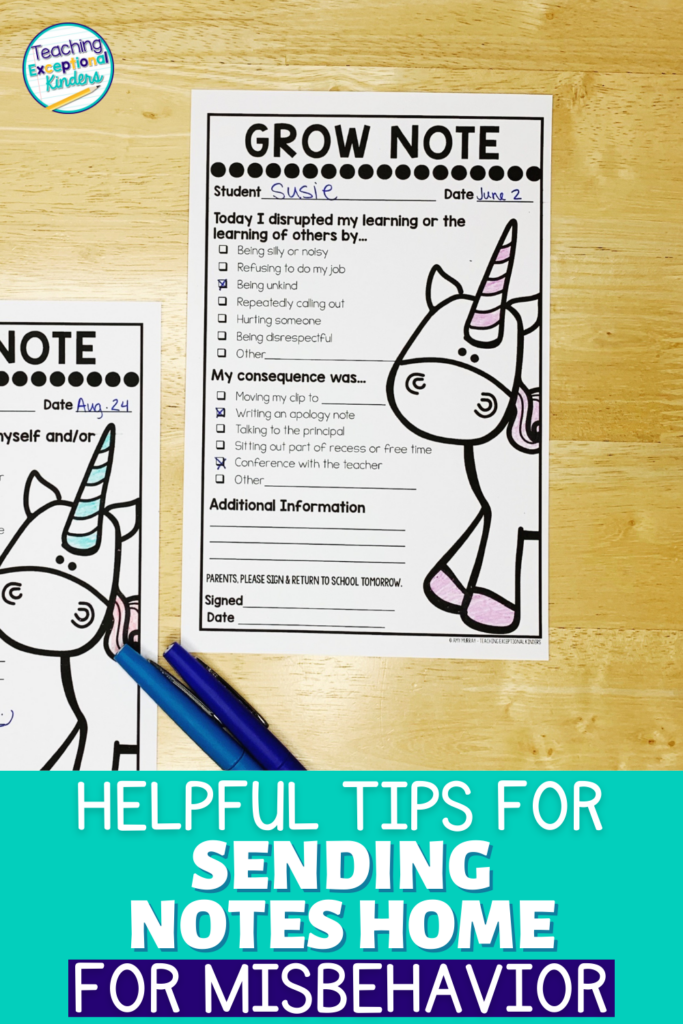
Amy
SITE DESIGN BY LAINE SUTHERLAND DESIGNS

